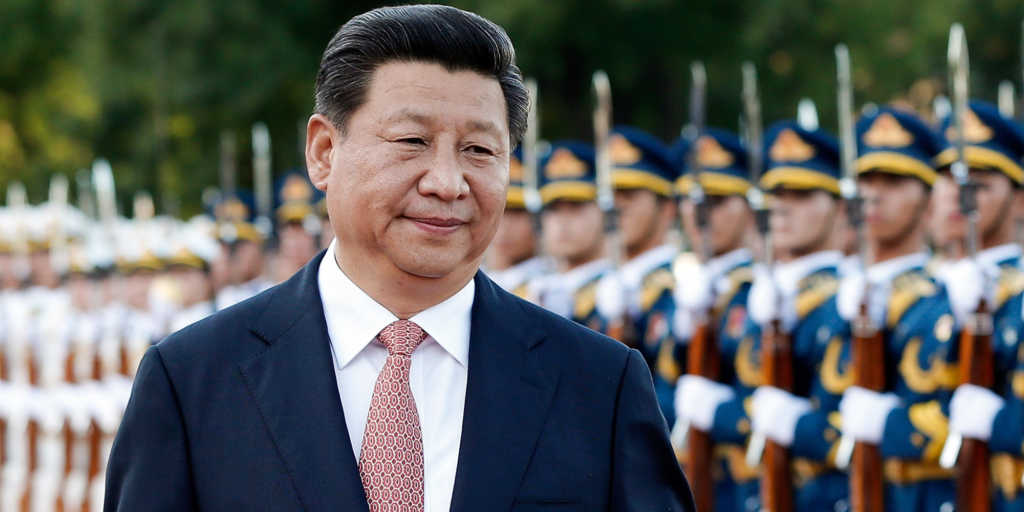Tomorrow, if our population were to own 1.31bn handsets manufactured and assembled in China, were to import products from this country that were critical to their routine functioning, and were to even learn how the name of their President pronounced, the Chinese would not care to designate Masood Azhar as a global terrorist at the United Nations. The love, admiration, and protection of the Chinese for the terrorist does not stem from the diplomatic hogwash they offer, but from the economics One-Belt-One-Road (OBOR, as addressed from here) project, and a few other aspects.
First things first, what explains China’s continuous and frustrating obsession with Masood Azhar? Clearly, the $62bn invested in the CPEC (China-Pakistan Economic Corridor) is a reason enough for China to shield Pakistan from the latter’s political blunders. Pakistan has been kind to return the favors in Organization of Islamic Cooperation (OIC) where it has helped the cause of China, despite the violent crackdown against Muslim Uyghur community in the Xinjiang province.
Recently, China has reached out to Iran, in what one can term as a small piece of the bigger puzzle, which is to reign influence on the entire South Asia. Embroiled in the South China Sea dispute in the East and looking to explore opportunities for military growth in the Indian Ocean, the obvious step for a China-sized nation would be to court the Islamic Nations in Asia’s West, and Pakistan is just another pawn in the process (even if Pakistanis wish to see themselves as the kings). After the Doklam standoff, one would have been immature, delusional (or socialist) to expect China to designate Masood Azhar as a global terrorist before the UN Security Council. China, as it has repeatedly shown, keeps its national interests over any other diplomatic commitments, even if the terrorist in question mobilizes men and resources to wreak havoc in India.
History is not a favorable factor in this case either, for China’s obsession to humiliate India’s claims has its origins in the rightful shelter offered by the Government of India to Dalai Lama in the 1950s. Thus, even if India went miles out its way to appease China on the diplomatic front, the results will be no different, and this mere factor, makes the government look weak before the average news consumer. The government is doing all it can in its diplomatic might, given how every nation in the UNSC apart from China is backing India on its claims.
Now, when it comes to China and India, none needs an elaborate military conflict, not because of the muscle power on either side, but because of the prolonged collateral damage that will occur. Writing editorials about boycotting Chinese products completely is unrealistic, to say the least.
However, there is no denying that China needs India for its exports as much as Indian market relies on China for cheap products. However, one must admit with a grain of salt that the edge is with China when it comes to trade.
Today, almost every other celebrity endorses Chinese brands, products, and companies. As average consumers, we care little about the products we buy and where they have been assembled or manufactured. We are caught in our own personal routine webs we have little interest in commenting or criticizing the growing presence of the Chinese in our market.
However,
Recently, on Diwali, I came across people in one of the biggest markets of my city looking for lights made in India against those in China. The choices they had were less, but many tried to make-do with whatever was available. Slowly, the rulers of the Indian market, we the people, must look at alternate options when it comes to routine consumption of products. From mobile phones to Diwali lights, we must look at products that are made in India first and anywhere else later.
This is not about patriotism alone, but a classic case of economics. Hamper the demand to constrain the supply, and hamper the demand until a point has been made, the point is that quite like the Chinese, even Indians care about their National Interests more than morality on the global stage. Even China, with all its might, cannot depend on its fancy missiles and warheads to run its finances or reduce its debt-to-GDP ratio and therefore, as Indians, we must do what we can. Our own history from the British Raj serves enough examples to learn how supply-and-demand can be used to wreck a country’s economic structure, as the British wrecked ours.
The Government needs to up the ante too. The reforms have been there, but manufacturing must be aided. Impart skill, create products, learn from the competition, and get going. No one is asking for a complete boycott of anything, and in a world as globalized as the one in 2018, it is not possible, but often, some intimidating on the economic front gets stuff done on the diplomatic one, and that is all we must focus on for the future. From mobile phones to Diwali lights, there is nothing, which cannot be manufactured or assembled in India, and as a growing market all set to touch the 1.4bn by the end of next decade, we must acknowledge the power we hold as consumers.
Another UNSC will come and go, and Masood Azhar will continue to remain China’s adopted political nincompoop, and one cannot blame the Chinese too, for $62bn from the National Treasury is a huge sum to pay for a diplomatic favor to a country that only recently humiliated them in a military standoff in one of the toughest terrains on Earth. The President, in his recent speech, made it clear that China will pursue an aggressive (read ruthless) policy abroad, and clearly, no diplomatic cupcakes are going to sway them away from having the complete pie.
China will not act, the government will keep striving, and in the midst all this, as citizens, we can be a part of the game Chinese understand well, Economics.
